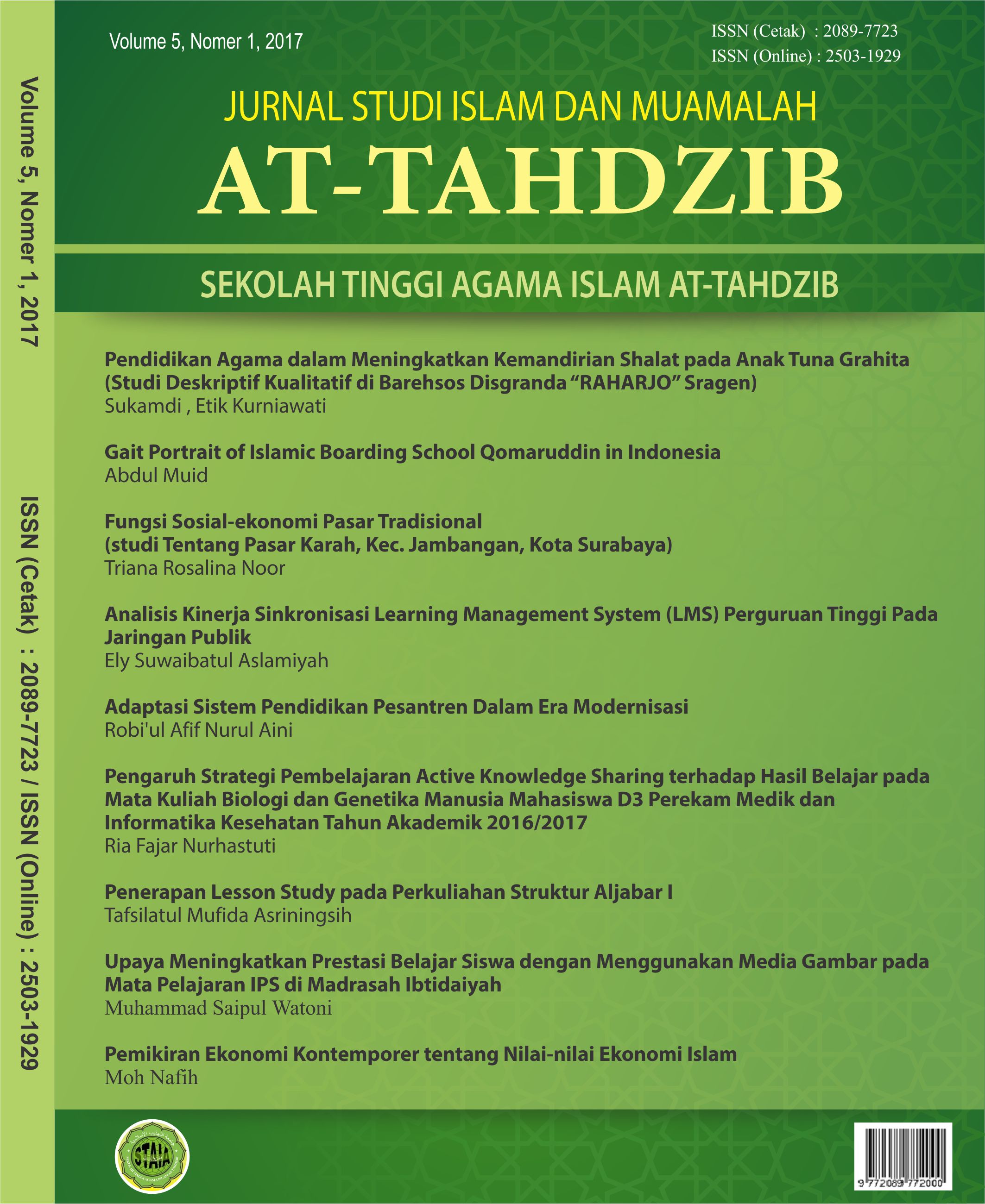Fungsi Sosial-Ekonomi Pasar Tradisional (Studi Tentang Pasar Karah Kec. Jambangan, Kota Surabaya)
Abstract
This study examines about traditional markets function in social and economic community around. The object is Karah Traditional Market, Kec. Jambangan, Surabaya. This study uses qualitative descriptive method involving as many as 30 respondents, which are 15 buyers and 15 sellers conduct transactions in the Karah Traditional Market and used incidental sampling.
The results of this study indicate that the social function of traditional markets Karah for communities that exist around the market first is a function of social relations, the market used as a strengthening of social relationships between sellers and buyers. Other activities are also the traders and buyers often discuss the latest news that busy discussed in public. The second social function is a function of socialization / exchange information which market participants interact with each other and make the process of delivering information and learning. As for economy functions, the first is to people who are buying and selling function which becomes meeting community needs. The second function is to bring jobs for the people around, because it absorbs jobs for the surrounding communities. The third function is the function adds to the welfare of society, the intention is Karah Market provides an additional income for the economic welfare of the community.
References
Djarwanto dan Pangestu Subagyo. 2000. Statiktik Induktif. Edisi Keempat. Cetakan Kelima. BPFE. Yogyakarta
Damsar. 2002. Sosiologi Ekonomi. Jakarta : PT. Raja Grafindo Persada
Departemen Pendidikan dan Kebudayaan. 1994. Dampak Pembangunan Ekonomi (Pasar) Terhadap Kehidupan Sosial Budaya Masyarakat di Daerah Jambi. Jambi : CV Rohim
Departemen Pendidikan Nasional. 2010. Peraturan Pemerintah Republik Indonesia Nomor 47 Tahun 2008 Tentang Wajib Belajar 9 Tahun. Jakarta: Departemen Pendidikan Nasional
Fidiyani, Rini.2008. Antropologi Ekonomi (Pengkajian Mengenai Aktivitas Perdagangan Di Pasar Tradisional Banyumas). Semarang: Badan Penerbit Undip
Habibah, Rini. 2008. Karakteristik Sosial Ekonomi Penghuni Perumahan Kalisalak Kelurahan Kauman Kecamatan Batang Kabupaten Batang. Skripsi. Jurusan Geografi FIS UNNES
Ihsan, Fuad. 1995. Dasar-dasar Pendidikan. Jakarta: Rineka Cipta.
Kartono. 1992. Pengantar Ilmu Mendidik Teoretis. Bandung: Mandar Maju
Lastuti. 2002. Kajian Sosial Ekonomi Penduduk Yang Memanfaatkan Hutan Mangrove Di Kelurahan Tritih Kulon Kecamatan Cilacap Utara. Skripsi. Jurusan Geografi FIS UNNES.
Moleong, J. Lexy. 2005. Metode Penelitian Kualitatif. Bandung : PT. Remaja Rosdakarya
Purwodarminto. 1990. Kamus Umum Bahasa Indonesia. Jakarta: Balai Pustaka
Siagian, Sondang P. 2006. Teori Motivasi dan Aplikasinya. Jakarta: Raneka Cipta
Soekanto, Soerjono. 2002.Sosiologi Suatu Pengantar. Jakarta : PT. Raja Grafindo Persada
Soehandono. 2000. Metode Penentuan Rumah Tangga Miskin.BPS
Sugiyono. 2005. Metode Penelitian Bisnis. Cetakan Kedelapan. Bandung : CV Alfabeta. Syarbaini, Syahrial ; Rusdiyanta. 2009. Dasar-Dasar Sosiologi. Yogyakarta : Graha Ilmu.
Wirawan, 2012. Teori-Teori Sosial Dalam Tiga Paradigma Fakta Sosia, Definisi Sosial & Perilaku Sosial. Jakarta: Kencana
Copyright (c) 2017 AT-Tahdzib: Jurnal Studi Islam dan Muamalah

This work is licensed under a Creative Commons Attribution 4.0 International License.

Jurnal Studi Islam by At-Tahdzib is licensed under a Creative Commons Attribution 4.0 International License.
Based on a work at http://ejournal.kopertais4.or.id/mataraman/index.php/tahdzib





